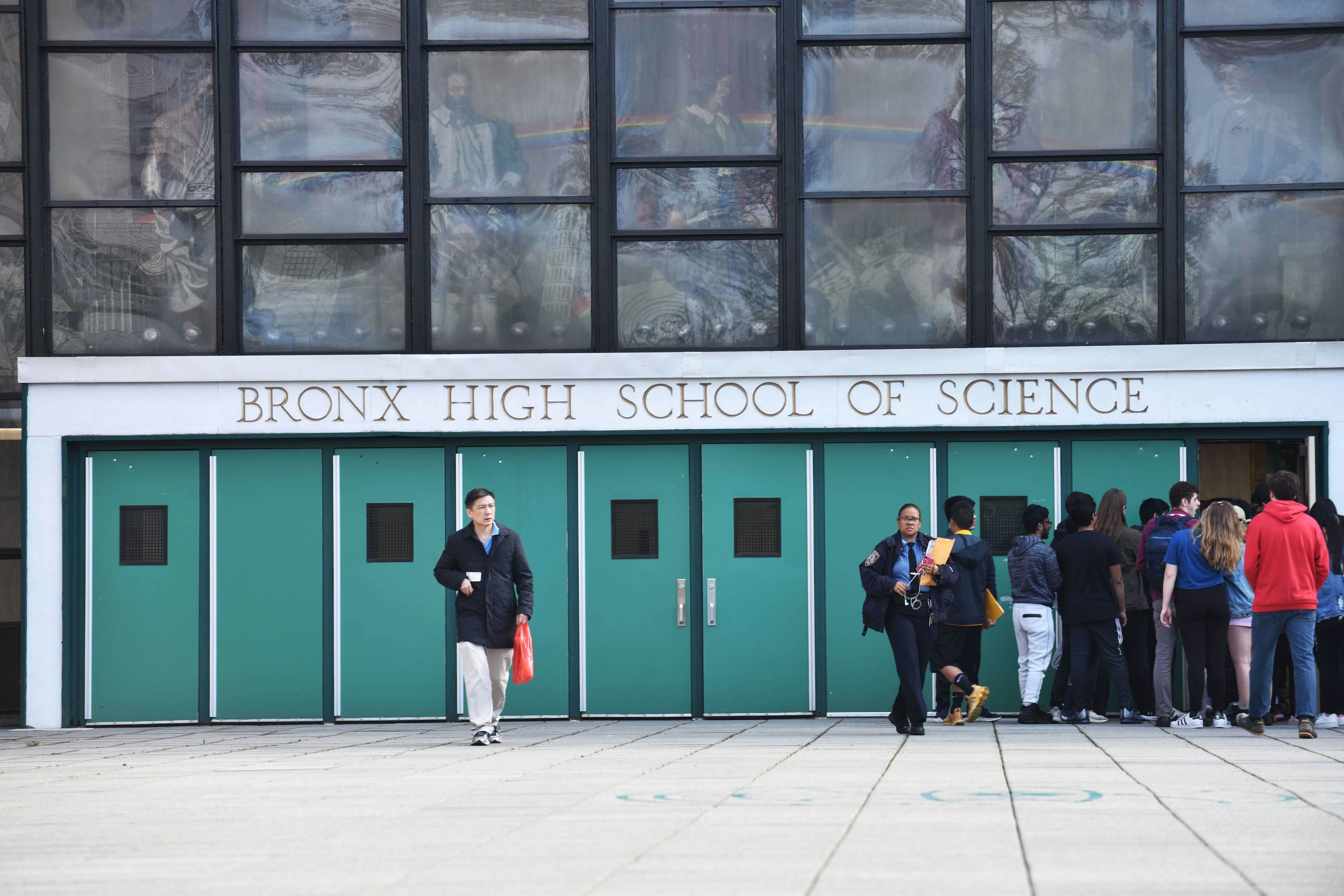Shortly after this story was published, the Education Department released admissions data. Read our coverage here.
New York City’s Education Department has yet to release highly anticipated high school admissions statistics, marking the first time in more than a decade that officials have not disclosed the results by mid-June.
The figures include demographic breakdowns of offers to the city’s specialized schools — widely considered among the nation’s most prestigious public high schools — and often command national headlines because the campuses enroll tiny numbers of Black and Latino students.
School integration advocates, government accountability groups, and even former department officials have begun to question the delays.
“It’s a completely reasonable public expectation that this information is published as soon as it’s available,” said John Kaehny, the executive director of Reinvent Albany, a group that pushes for government transparency. “It’s right to ask the mayor, ‘Where the heck is this?’”
Under Mayor Eric Adams, the Education Department began releasing high school admissions figures in June, months later than his predecessor. In recent weeks, education officials repeatedly promised to disclose the data imminently, though they have yet to do so.
The figures often generate fresh debate about the status of the city’s schools as among the country’s most segregated. New York City is home to an unusually large share of public schools that enroll students based on academic performance, including eight specialized high schools that only consider a student’s performance on a single exam.
Although they only enroll about 5% of the city’s students, the specialized high schools command outsized attention because they are widely considered to be among the country’s most prestigious public schools. Still, the campuses’ demographics do not reflect the student body as a whole, prompting longstanding debate about whether the admissions process should change. Even as offers to Black and Latino students inched up last year, four of the eight specialized schools that rely on a single test offered admission to 10 or fewer Black students.
Some observers have wondered if the delay could reflect an effort by Adams, who is seeking reelection, to release the specialized high school figures over the summer when they might get less attention. In response to a social media post making that claim, former Education Department spokesperson Nathaniel Styer wrote on July 3 that “they should’ve had this data out at least a month ago.”
Styer, who left the department in April, added that he encouraged the department to release the high school school admissions statistics in June instead of earlier in the spring to include them along with middle school, kindergarten, and prekindergarten figures all at once instead of in separate batches. (Those groups have slightly different admissions timelines.)
Typically, the statistics also include the share of students who got into programs they ranked at the top of their application and other basic information about the number of applicants for each grade level.
Education Department spokesperson Nicole Brownstein said the data has not been released because the department is planning to include a new set of statistics this year that need to be vetted for accuracy. She declined to elaborate.
“We are working on it — that’s all I can really say to you right now,” Brownstein said during a brief phone call. She later wrote in an email the results would be published on Thursday.
Matt Gonzales, a longtime integration advocate and the campaign director of New Yorkers for Racially Just Public Schools, argued the delayed statistics are part of a pattern.
“When it comes to transparency around data, and when it comes to addressing issues around segregation, this administration has made it pretty clear that they don’t care,” he said.
A City Hall spokesperson did not respond to a request for comment.
Other advocates wondered if the department is simply overwhelmed, as the federal government freezes education funding and some families have been caught up in more aggressive immigration enforcement.
“2025 is like no other year prior in my lifetime in regards to everything that is happening,” said Zakiyah Shaakir-Ansari, co-executive director of the Alliance for Quality Education, an advocacy group.
She noted that it is unlikely that the admissions figures will reveal significant demographic shifts at the specialized schools, but she was intrigued by the promise of new information about the admissions process.
“It would be interesting to see what new data they’re trying to parse out,” Shaakir-Ansari said.
Alex Zimmerman is a reporter for Chalkbeat New York, covering NYC public schools. Contact Alex atazimmerman@chalkbeat.org.







